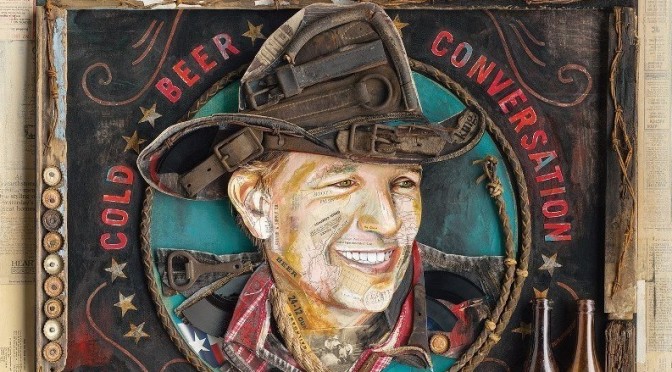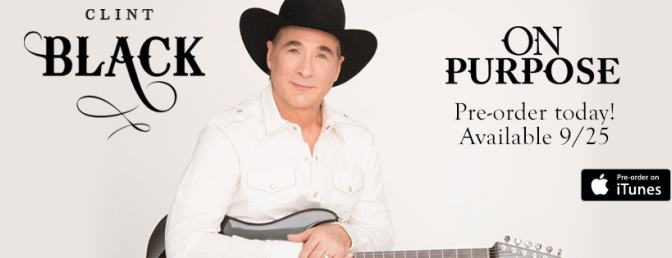Rating: 9/10
For those unfamiliar with the Texas/Red Dirt scene, Jason Boland & The Stragglers is one of the first bands you should know. The Oklahoma-based band have been a presence in Red Dirt since 2001 and have gained a reputation within the scene for their traditional country brand of Red Dirt. They are back with Squelch, a great country-sounding album full of political and social commentary. Though this type of album might not be for everyone, with its highly political nature, Squelch is an album many will find themselves enjoying.
For those unfamiliar with the term “Squelch,” it refers to the knob on a CB radio used to mute the static. This static seems to be a metaphor for the information surplus we receive daily, and “Break 19,” the album’s opener, continues with CB lingo to protest the amount of information we are fed daily. “Once you read between the lines, you miss the days when you were blind”–what an excellent line. “The First to Know” is more ambiguous, seeming to call out social media for its controlling nature. “If my voice sounds scared and frozen, it’s because I’m afraid and cold, and when I am, you’ll always be the first to know” is a disturbing truth about the hold social media has on many. The fiddle in this song is excellent. Next is the straight rock “I Guess it’s All Right to be an Asshole.” The premise here is “Genius is always bound to be misunderstood, I guess it’s all right to be an asshole if you’re good.” It’s as simple and as true as this.
“Holy Relic Sale” is next. Currently at #24 on the
Texas Music Chart, this song is the first break from social commentary. Inspired by Jason Boland’s wife’s lucky blue socks, the song tells of a day they found themselves enjoying, despite the fact that she left her lucky socks at home. “The sun will also shine on the nonbeliever” reminds us that we will all have our good and bad days in life. “Heartland Bypass” is a musically excellent song featuring acoustic guitar, steel, and fiddle–here, Jason is asking his woman to get away with him. It’s my personal favorite of the album and one that you should just listen to, and then listen to again. “Lose Early” is a country rock critique of the wealthy–the great Red Dirt mix of fiddles and rock guitars fits this song perfectly. It’s a sound like no other, even if you don’t like political commentary. “Do You Love Me Any Less” is a traditional country song in which the narrator is asking a woman if she’ll love him less while he is on the road. “Do you love me any less when I’m gone?”–what a line. It should be noted that Cody Angel, the newest Straggler, has brought some remarkable steel guitar to this album, and it shines on this song in particular.
The fun, upbeat “Fat and Merry” is another attack on the wealthy, this one much more obvious and all the more entertaining. This song is rife with excellent, sarcastic lines, but this one sticks out: “Here in the land of plenty, there are plenty that could land a little more.” “Christmas in Huntsville” is the darkest point of the album. Here, the narrator is on Death row for a crime he did not commit. He reflects on God, his family, the “man I didn’t kill,” and his last meal, which is “turkey and dressing for this Christmas in Huntsville.” After this utterly depressing song, I am thankful for “Bienville,” a song about a traveling man who meets a woman with a like-minded spirit in the Bienville hotel, and the two fall in love. There are a lot of great lines on Squelch, but the best are found here: “All of my life I prayed I would find another lost soul with the travel in mind. The years I spent wishing left me ill-prepared for the Bienville hotel, and the time that we shared.” The instrumentation is also excellent, with more of that great balance of acoustic guitar, steel and prominent fiddle. The album closes with the blazing, upbeat “Fuck, Fight, and Rodeo,” an attack on American politics and leaders, whom Jason Boland simply labels “their kind.” It’s an ironically cheerful song, as the premise is basically that nothing will ever be fixed with “their kind” in charge. It’s definitely an appropriate way to close such an album.
Squelch is an album which I would describe as surprisingly enjoyable. It’s certainly charged with political and social commentary, and many won’t like these lyrics, but they are delivered to us in musically excellent songs that any country fan will enjoy. As a person who does enjoy the lyrics, I find Squelch to be a rather excellent album, but I recognize some won’t be able to appreciate it as much. Still, it’s a great introduction to the world of Texas country/Red Dirt and an album worth checking out.

![Album Review: Thomas Rhett–<I>Tangled Up</I> [a rant]](http://countryexclusive.com/wp-content/uploads/2015/09/cover3-600x372.jpg)

